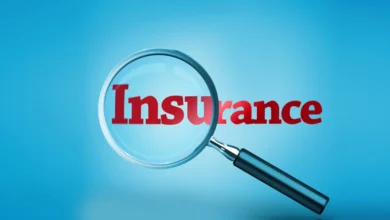Can Your Insurance Company Cancel Your Policy Without Notice? (Explained BY B.Flix)

Insurance is an essential part of our lives, whether it’s car insurance, home insurance, health insurance, or life insurance. We trust that our insurance company will protect us when we need it most. However, one concern that many people have is whether their insurance company can cancel their policy without notice. This is an important question because an unexpected cancellation can leave you unprotected, potentially leading to serious financial consequences. In this article, we will dive into this question, explain the circumstances under which an insurance policy might be canceled, and discuss your rights as a policyholder.
When you sign an insurance policy, you expect to be covered in times of need. Whether it’s an accident, illness, or property damage, your insurance should provide you with financial protection. However, there are situations where your insurance company might cancel your policy. This can happen for various reasons, but the big question many policyholders have is whether the company can cancel their policy without notice. Let’s explore this in more detail.
Reasons an Insurance Company Might Cancel a Policy
Insurance companies can cancel a policy for several reasons, ranging from non-payment to fraudulent activity. Below are the most common reasons an insurance company may decide to cancel a policy:
Non-payment of Premiums
The most common reason for an insurance policy cancellation is failure to pay premiums. If you miss a payment or fail to pay your premiums within the allowed grace period, your insurance company may cancel your policy. Insurers typically provide a grace period of 30 days to make payments before they take action.
Misrepresentation or Fraud
If the insurance company discovers that you provided false information when applying for the policy, such as misrepresenting your health condition, driving history, or property details, they may cancel your policy. Fraudulent claims, such as intentionally misreporting an accident or injury, can also lead to cancellation.
Policyholder’s Risk Changes
If the circumstances around the insured item or person change significantly, the insurance company might decide to cancel the policy. For instance, if you’re driving a car and you no longer meet the required driving conditions, such as losing your driver’s license, the company may choose to cancel your auto insurance. Similarly, if you own a home and make significant renovations that increase the risk (e.g., installing a pool without informing the insurer), they may cancel your homeowner’s insurance.
Insurance Company’s Business Decisions
Sometimes, the reason for policy cancellation is entirely unrelated to the policyholder’s actions. Insurance companies might decide to discontinue certain policies as part of their business strategy. They may also cancel policies in regions where they’re losing money or where there is a high risk of claims, such as areas prone to frequent natural disasters. This is typically known as a “non-renewal,” which is different from a cancellation.
Can Insurance Companies Cancel Policies Without Notice?
Now that we know why an insurance company might cancel a policy, let’s address the key question: can they cancel your policy without notice?
Laws and Regulations Protecting Policyholders
In most cases, insurance companies are required by law to provide notice before they cancel a policy. The exact requirements vary depending on the type of insurance and the laws in your state or country. For example, in the United States, most states require insurance companies to give a notice period before they cancel a policy. This notice period usually ranges from 10 to 30 days, depending on the reason for the cancellation.
If the cancellation is due to non-payment of premiums, the insurer typically provides a grace period (often 30 days) during which the policyholder can pay the overdue amount and avoid cancellation. If the cancellation is for another reason, such as misrepresentation or fraud, the insurance company usually needs to provide written notice.
Situations When Notice Is Required
If the cancellation is initiated by the insurance company, they are generally required to give you advance notice, except in certain circumstances. For example:
- Non-payment of premiums: The insurer must notify you if you miss a payment and give you a chance to pay before the policy is canceled.
- Fraud or misrepresentation: If the company finds that you’ve misrepresented important details, they must usually inform you and explain why the policy is being canceled.
- Changes in risk: If your risk level has changed, and your insurer plans to cancel your policy, they must notify you about the reasons for cancellation.
The length of notice depends on the reason for the cancellation, but in many cases, insurance companies must give at least 10 to 30 days’ notice before terminating your coverage.
Situations When Notice May Not Be Required
There are some situations where an insurance company can cancel your policy without prior notice. These are typically situations where immediate cancellation is necessary to protect the insurer from significant financial risk. Examples include:
- Immediate risk: If continuing the policy exposes the insurer to unreasonable risk, such as when a policyholder is found to be engaging in illegal activities or fraud, the insurer might be able to cancel the policy immediately, without notice.
- Policy expiration: Some insurance policies automatically cancel when they expire without any need for notice, especially if the policyholder has not renewed or made any payments.
What You Can Do If Your Insurance Policy Is Canceled
If your insurance policy is canceled, there are several steps you can take to understand why it happened and to potentially resolve the situation.
Review Your Policy Documents
Carefully read your policy documents to understand the terms and conditions, including cancellation clauses. The cancellation section should tell you how much notice the company must give, the reasons they may cancel, and your rights if they do.
Contact Your Insurance Company
If you receive a cancellation notice or if you find out your policy was canceled, contact your insurer immediately. Request clarification on the reason for the cancellation and whether there’s any way to reinstate the policy. In some cases, they may allow you to pay any outstanding premiums or provide additional documentation to avoid cancellation.
Appeal the Cancellation
If you believe the cancellation was wrongful or due to an error, you have the right to appeal. Reach out to your insurance company’s customer service department and follow their appeal process. If the issue is not resolved to your satisfaction, you can contact your state’s insurance regulator.
Find Alternative Insurance
If your policy has been canceled and it’s too late to appeal or reinstate it, you will need to find new insurance. Be aware that a policy cancellation may affect your ability to obtain affordable insurance in the future. Make sure you shop around and provide accurate information to avoid future issues.
Preventing Policy Cancellations
While it’s impossible to guarantee that your policy will never be canceled, there are several steps you can take to reduce the risk:
Stay Up to Date with Payments
Ensure that you make your payments on time. If you’re struggling with payments, contact your insurer to inquire about possible payment plans.
Be Honest and Accurate on Your Application
Always provide truthful information when applying for insurance. Misrepresentation can lead to cancellation if the insurer finds out.
Regularly Update Your Insurance Information
Keep your insurance company informed about any major life changes, such as moving to a new home, getting married, or purchasing a new car. This helps ensure that your policy accurately reflects your current circumstances.
Conclusion
While it’s generally not common for insurance companies to cancel policies without notice, it is possible in certain situations. Insurance companies must usually provide notice before canceling a policy, except in cases of fraud, illegal activities, or immediate risk. If your policy is canceled, you have the right to appeal, and it’s important to find alternative coverage as soon as possible. To avoid cancellation, stay on top of payments, provide honest information, and keep your insurance up to date.



